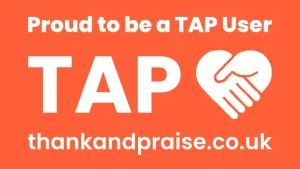Displaced Talent Project
NCF worked with Skills for Care to create four workstreams to help providers recruit displaced talent.
We planned to develop a suite of resources that could be used by adult social care employers to help them when they are recruiting displaced talent, specifically non-UK nationals residing in the UK with refugee status or as asylum seekers.
We wanted to explore what could be useful at:
- Place-level – focusing on how we can support the recruitment of displaced talent in two localities (Meaningful support for employers in a locality)
- Organisation-level – focusing on how organisations have approached the recruitment of displaced talent (Video Diaries of Social Care Organisations that have recruited Displaced Talent)
We also wanted to explore:
- the development of an informative webpage that consolidates valuable information and resources and gives social care employers some information on how to utilise the resources available for them.
- the development of a charter, a pledge for employers to sign, showing their commitment to being supportive employers of displaced talent.
What is Displaced Talent?
The first question we wanted to explore was: What is displaced talent? Through our research, we discovered the following:
In the UK, there is a group of workers known as displaced talent. This group includes non-UK nationals residing in the UK with refugee status, and also a subset of asylum seekers who are allowed to work via the Shortage Occupation List after being in the country for 12 months.
Refugees
Refugees have the freedom to work in the UK without restrictions.
Asylum Seekers
Asylum seekers are individuals who have applied for protection and are waiting for a decision on their refugee status from the Home Office. This decision period is supposed to last around six months, but it can extend to several years due to various factors, including delays caused by COVID-19. Asylum seekers generally do not have the right to work while their claim is being processed. However, they can apply for permission to work if:
- They have been in the UK for over 12 months without a decision through no fault of their own.
- They take up a role listed on the Shortage Occupation List, which includes jobs in short supply in the UK labour market.
In February 2022, care workers were added to the Shortage Occupation List to help support care providers and address workforce shortages. This change has created opportunities for social care employers to hire displaced talent for care worker and home care worker positions from people already in the UK, including those awaiting a decision on their asylum status.
To learn more about hiring displaced talent, key considerations for employers, and access to additional resources, please click here
How social care providers can become excellent employers for refugees and asylum seekers?
We spoke to three experts to explore our second question – What can adult social care providers do to become excellent employers of refugees and asylum seekers? Here’s what they shared:
Camilla from Pilgrims’ Friend Society
Camilla shared her organisation’s experience with hiring international workers. She talked about the successful steps they took during the recruitment process and some initiatives that worked really well. Listen below to learn more about what they did and the positive results they saw.
Rick from BA Healthcare
Rick, from an ethical recruitment agency, shared his thoughts on hiring refugees and asylum seekers. He talked about important things employers should consider to support these workers. Watch his interview below to get his tips on ethical recruitment.
Amanda from Shropshire Supports Refugees
Amanda, in conversation with our Policy, Projects and Research Officer Finn Turner-Berry, discussed the extra support that employers often overlook when hiring refugees and international workers. Watch below to hear Amanda’s advice on creating a supportive workplace.
How We Can Support the Recruitment of Displaced Talent in Two Localities?
We also wanted to find out how to best support the recruitment of displaced talent in two different localities: Surrey, with a history of supporting refugees, and Shropshire, with lower levels of refugees. To do this, we conducted focus groups and interviews with key stakeholders and developed tailored support offers for each locality.
Surrey
Surrey has a long history of supporting refugees. Our focus groups helped us identify some support options that would be most beneficial here.
Shropshire
Shropshire has fewer refugees and different needs. Our focus groups helped us develop a unique support offer tailored to this locality.
How Can Employers Support Refugees and Asylum Seekers?
Our final focus was developing a charter for employers to sign, demonstrating their commitment to being supportive employers of refugees and asylum seekers. This charter outlines key commitments and best practices.
We are exploring how this charter can be rolled out to social care providers.


